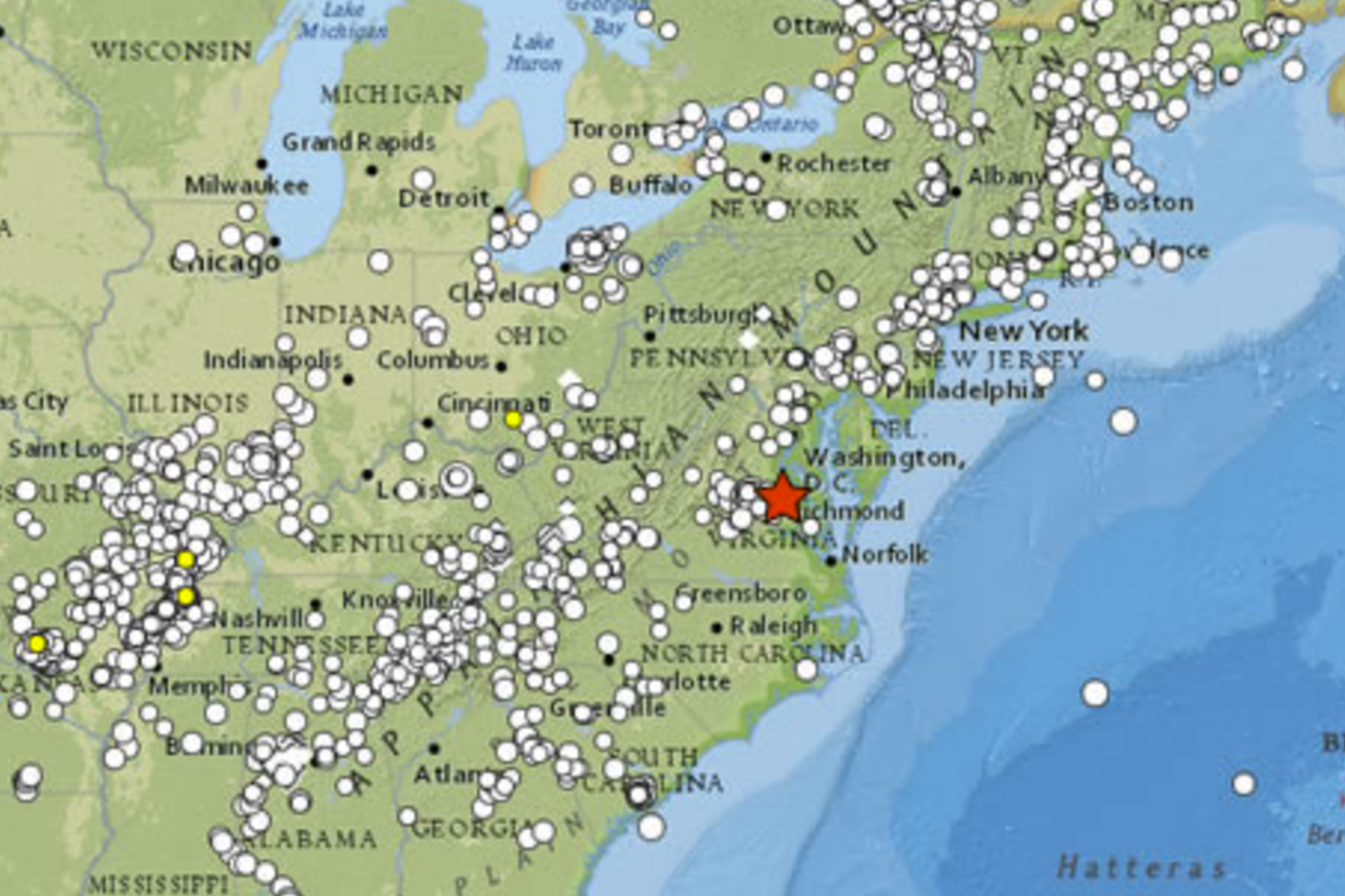6 years ago: 5.8 magnitude earthquake shook the Jersey Shore

A red star denotes the location of the August 23, 2001 earthquake, and the dots represent the locations where people reported feeling the tremor to the United States Geological Survey. (Image: USGS)
Six years ago today, the Jersey Shore was rattled by an earthquake that experts say about one-third of the United States population also felt.
The 5.8 magnitude earthquake centered in the Piedmont region of Virginia struck at 1:51 p.m. Within seconds, frenzied social media uses posted about the experience, and cell phone lines became jammed.
The Jersey Shore didn’t experience any major structural damage, but residents reported items falling in the houses, and managers of some commercial and government buildings didn’t take any chances and ordered evacuations.
In Atlantic City, numerous high rise buildings were evacuated, and some beachgoers at the time said they feared a tsunami.
John Harvey told JSHN today that it was an experience that he’ll never forget.
“I almost fell off a ladder I was standing on. I’ve lived next to San Francisco now for two-and-a-half years, and it is STILL the strongest quake/shaking I’ve felt in my life,” he wrote.
While the August 2011 earthquake wasn’t centered in New Jersey, the state has experienced dozens of much weaker local seismic events, according to the United States Geological Survey.
Other shaking incidents in recent years have been mistaken for earthquakes but were from sonic booms.
In October 2012, a sonic boom was deemed the culprit of ground shaking felt at the Jersey Shore. In February 2014, another sonic boom rattled the same area, followed by a third in January 2016. The cause of additional shaking incidents in recent years remain unconfirmed.
In the hours after the 2014 incident, John Bellini, a geophysicist with the USGS, told NewsWorks that seismometers only detect vibrations within the ground.
“Air blasts and super sonic booms don’t get recorded,” he said. “So if it’s a sonic boom, thunder, or a transformer exploding, there’s no chance of recording it unless it occurs right near the seismometer.”
WHYY is your source for fact-based, in-depth journalism and information. As a nonprofit organization, we rely on financial support from readers like you. Please give today.

